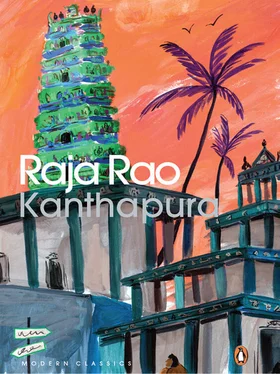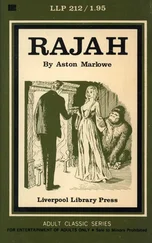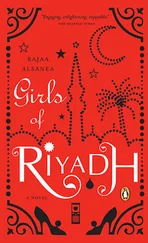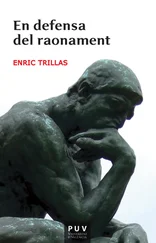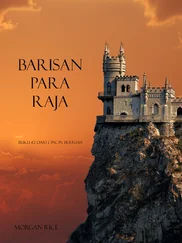Raja Rao - Kanthapura
Здесь есть возможность читать онлайн «Raja Rao - Kanthapura» весь текст электронной книги совершенно бесплатно (целиком полную версию без сокращений). В некоторых случаях можно слушать аудио, скачать через торрент в формате fb2 и присутствует краткое содержание. Год выпуска: 2014, Издательство: Penguin, Жанр: Классическая проза, на английском языке. Описание произведения, (предисловие) а так же отзывы посетителей доступны на портале библиотеки ЛибКат.
- Название:Kanthapura
- Автор:
- Издательство:Penguin
- Жанр:
- Год:2014
- ISBN:нет данных
- Рейтинг книги:3 / 5. Голосов: 1
-
Избранное:Добавить в избранное
- Отзывы:
-
Ваша оценка:
- 60
- 1
- 2
- 3
- 4
- 5
Kanthapura: краткое содержание, описание и аннотация
Предлагаем к чтению аннотацию, описание, краткое содержание или предисловие (зависит от того, что написал сам автор книги «Kanthapura»). Если вы не нашли необходимую информацию о книге — напишите в комментариях, мы постараемся отыскать её.
Kanthapura — читать онлайн бесплатно полную книгу (весь текст) целиком
Ниже представлен текст книги, разбитый по страницам. Система сохранения места последней прочитанной страницы, позволяет с удобством читать онлайн бесплатно книгу «Kanthapura», без необходимости каждый раз заново искать на чём Вы остановились. Поставьте закладку, и сможете в любой момент перейти на страницу, на которой закончили чтение.
Интервал:
Закладка:
‘Today,’ he says, ‘it will be the story of Siva and Parvati.’ And Parvati in penance becomes the country and Siva becomes heaven knows what! ‘Siva is the three-eyed,’ he says, ‘and Swaraj too is three-eyed: Self-purification, Hindu-Moslem unity, Khaddar.’ And then he talks of Damayanthi and Sakunthala and Yasodha and everywhere there is something about our country and something about Swaraj. Never had we heard Harikathas like this. And he can sing too, can Jayaramachar. He can keep us in tears for hours together. But the Harikatha he did, which I can never forget in this life and in all lives to come, is about the birth of Gandhiji. ‘What a title for a Harikatha!’ cried out old Venkatalakshamma, the mother of the Postmaster. ‘It is neither about Rama nor Krishna.’—’But,’ said her son, who too has been to the city, ‘but, Mother, the Mahatma is a saint, a holy man.’—’Holy man or lover of a widow, what does it matter to me? When I go to the temple I want to hear about Rama and Krishna and Mahadeva and not all this city nonsense,’ said she. And being an obedient son, he was silent. But the old woman came along that evening. She could never stay away from a Harikatha. And sitting beside us, how she wept!.
This is the story Jayaramachar told us.
In the great heavens, Brahma, the self-created one, was lying on his serpent, when the sage Valmiki entered, announced by the two doorkeepers. ‘Oh, learned sire, what brings you into this distant world?’ asked Brahma, and, offering the sage a seat beside him, fell at his feet. ‘Rise up, O God of Gods! I have come to bring you sinister news. Far down on the earth you chose as your chief daughter Bharatha, the goddess of wisdom and well-being. You gave her the sage-loved Himalayas on the north and the seven surging seas to the south, and you gave her the Ganges to meditate on, the Godavery to live by, and the pure Cauvery to drink in. You gave her the riches of gold and of diamonds, and you gave her kings such as the world has never seen! Asoka, who loved his enemies and killed no animal; Chandragupta, who had the nine jewels of wisdom at his court; and Dharmaraya and Vikramaditya and Akbar, and many a noble king. And you gave her, too, sages radiating wisdom to the eight cardinal points of the earth, Krishna and Buddha, Sankara and Ramanuja. But, O Brahma, you who sent us the prince propagators of the holy law and sages that smote the darkness of ignorance, you have forgotten us so long that men have come from across the seas and the oceans to trample on our wisdom and to spit on virtue itself. They have come to bind us and to whip us, to make our women die milkless and our men die ignorant. O Brahma, deign to send us one of your gods so that he may incarnate himself on earth and bring back light and plenty to your enslaved daughter. ’ ‘O sage,’ pronounced Brahma, ‘is it greater for you to ask or for me to say “Yea”? Siva himself will forthwith go and incarnate himself on the earth and free my beloved daughter from her enforced slavery. Pray seat yourself; the messengers of heaven shall fly to Kailas and Siva be informed of it.’
And lo, when the Sage was still partaking of the pleasures Brahma offered him in hospitality, there was born in a family in Gujerat a son such as the world has never beheld! As soon as he came forth, the four wide walls began to shine like the kingdom of the sun, and hardly was he in the cradle than he began to lisp the language of wisdom. You remember how Krishna, when he was but a babe of four, had begun to fight against demons and had killed the serpent Kali. So too our Mohandas began to fight against the enemies of the country. And as he grew up, and after he was duly shaven for the hair ceremony, he began to go out into the villages and assemble people and talk to them, and his voice was so pure, his forehead so brilliant with wisdom, that men followed him, more and more men followed him as they did Krishna the flute player; and so he goes from village to village to slay the serpent of the foreign rule. Fight, says he, but harm no soul. Love all, says he Hindu, Mohammedan, Christian or Pariah, for all are equal before God. Don’t be attached to riches, says he, for riches create passions, and passions create attachment, and attachment hides the face of truth. Truth must you tell, he, says, for truth is God, and verily, it is the only God I know. And he says too, spin every day. Spin and weave every day, for our Mother is in tattered weeds and a poor mother needs clothes to cover her sores. If you spin, he says, the money that goes to the Red-man will stay within your country and the Mother can feed the foodless and the milkless and the clothless. He is a saint, the Mahatma, a wise man and a soft man, and a saint. You know how he fasts and prays. And even his enemies fall at his feet. You know once there was an ignorant Pathan who thought the Mahatma was a covetous man and wanted to kill him. He had a sword beneath his shirt as he stood waiting in the dark for the Mahatma to come out of a lecture hall. The Mahatma comes and the man lifts up his sword. But the Mahatma puts his hands on the wicked man’s shoulders and says, ‘Brother, what do you want of me?’ And the man falls at the feet of the Mahatma and kisses them, and from that day onwards there was never a soul more devoted than he. And the serpent that crossed the thighs of the Mahatma, a huge serpent too.
And there were other stories, he told us, Jayaramachar. But hardly had he finished the Harikatha and was just about to light the camphor to the god, than the Sankur police jemadar is there. Moorthy goes to him and they talk between themselves, and then they talk to Jayaramachar, and Jayaramachar looks just as though he was going to spit out, and we never saw him again. Our Moorthy performed the camphor ceremony and from that day onwards Moorthy looked sorrowful and calm. He went to Dorè and Sastri’s son, Puttu, and Puttu went to Postmaster Suryanarayana’s sons, Chandru and Ramu, and then came Pandit Venkateshia and Front-house Sami’s son, Srinivas, and Kittu, and so Kittu and Srinivas and Puttu and Ramu and Chandru and Seenu, threw away their foreign clothes and became Gandhi’s men.
Two days later, Policeman Badè Khan came to live with us in Kanthapura.
2
To tell you the truth, Badè Khan did not stay in Kanthapura. Being a Mohammedan he could stay neither in the Potters’ street nor in the Sudra street, and you wouldn’t of course expect him to live in the Brahmin street. So he went to Patwari Nanjundia and growled at him, and the Patwari trembled and lisped and said he could do nothing. ‘Only the Patel can do something.’ Then, straight went Badè Khan to the Patel and said, ‘Hè, Patel. The Government has sent me here, and I need a house to live in.’
‘Hm,’ said Patel Rangè Gowda, crossing the threshold on to the veranda, ‘a house. Well, you can look round and see. I can’t think of one for the moment.’ He opened his betel-bag and carefully taking a tobacco leaf, he seated himself, and wiping the tobacco leaf against his dhoti, he put it into his mouth, then put an areca nut with it and began to munch.
Badè Khan was getting restless. Not only did the Patel look indifferent but he hadn’t even asked Badè Khan to seat himself. So, he went up the three steps and sat by a pillar, his feet hanging down the veranda and his stick between his legs. They were silent for a moment. Then, ‘Hè, Chenna,’ cried Rangè Gowda, turning towards the inner courtyard, ‘you had better go to the big field and see whether those sons of concubines are planting well. And tell Mada to hurry back before midday and fill the carts with sacks. Tomorrow is the fair.’
Meanwhile the cattle were coming out of the main door, the whitey, the blotchy, and the one-horned one and Lakshmi and Gauri, and then the bulls and buffaloes, and they hurried down the steps ringing their bells and banging their clogs, and young Sidda was behind them, his stick in his hand and the dung basket on his head. Badè Khan could not see Rangè Gowda, and he spat nervously into the gutter and sat dropping the lathi ring on the steps. Rangè Gowda looked up, then put a lime-smeared betel leaf into his mouth and said, ‘So you want a house, police sahib? I am sorry I have none to offer you.’
Читать дальшеИнтервал:
Закладка:
Похожие книги на «Kanthapura»
Представляем Вашему вниманию похожие книги на «Kanthapura» списком для выбора. Мы отобрали схожую по названию и смыслу литературу в надежде предоставить читателям больше вариантов отыскать новые, интересные, ещё непрочитанные произведения.
Обсуждение, отзывы о книге «Kanthapura» и просто собственные мнения читателей. Оставьте ваши комментарии, напишите, что Вы думаете о произведении, его смысле или главных героях. Укажите что конкретно понравилось, а что нет, и почему Вы так считаете.
